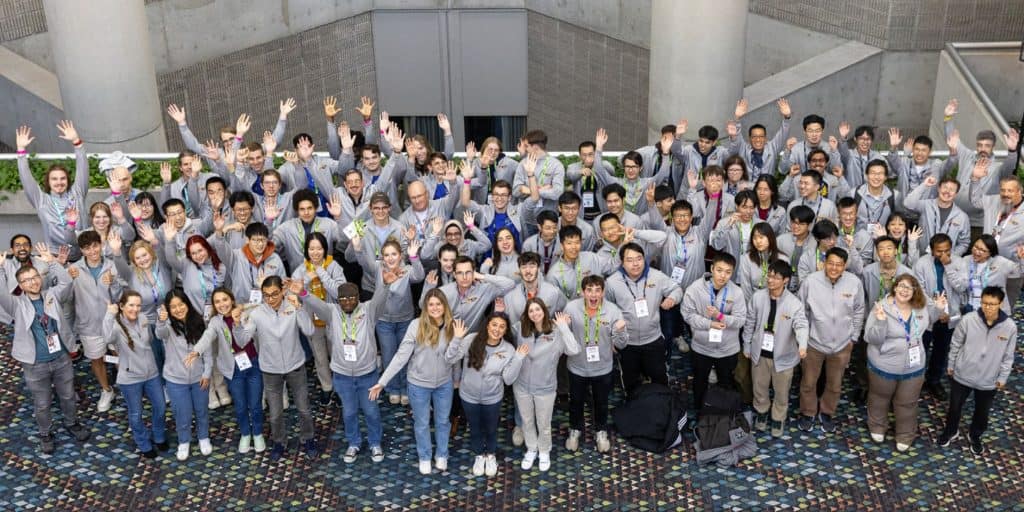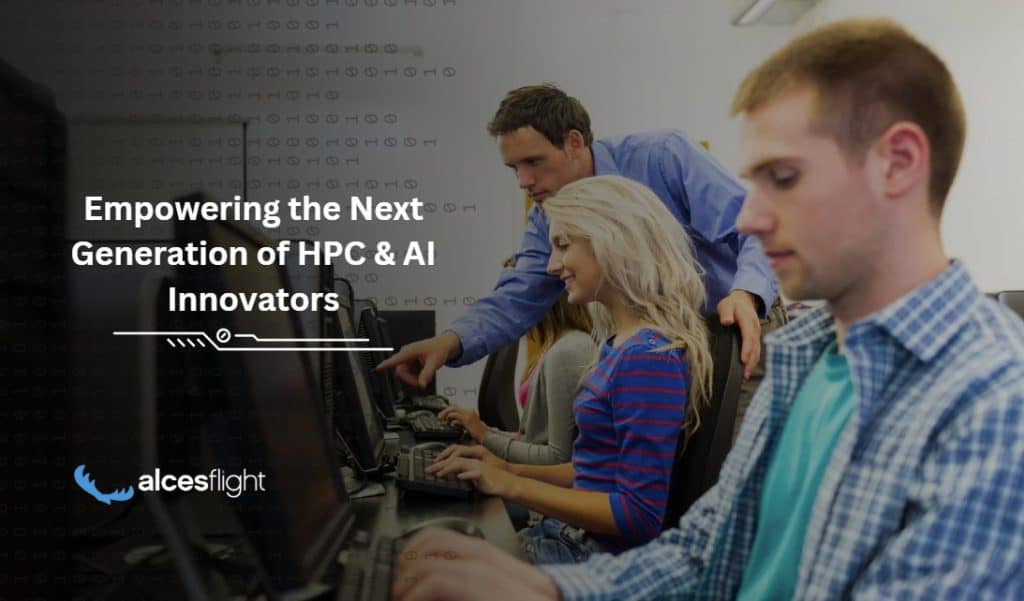At Alces Flight, we’re passionate about empowering the next generation of talent in High Performance Computing (HPC) and Artificial Intelligence (AI). We believe that real-world experience is key to shaping future innovators — which is why we actively support student-focused initiatives like the CIUK Student Cluster Challenge and IndySCC, part of the international Supercomputing Conference (SC) series.
Today, we’re excited to share the story of two teams we helped train — and how this opportunity will help pave the way for their future endeavours.
Pathways to Careers in Supercomputing
Student Cluster Challenges are incredible opportunities to educate and inspire future leaders in our field. Since the first event at SC07 in Reno, Nevada, these competitions have grown into major international events, with regional challenges acting as stepping stones for future championship teams.
When CIUK launched its first Student Cluster Challenge in 2020, Alces Flight was proud to be there from the start, supporting the competition with resources and mentorship. This initiative has since connected winning teams to larger global competitions like ISC and SC — and in 2022, we proudly expanded our support as sponsors and mentors for IndySCC.
So, what is IndySCC – and Why Does it Matter?
Our decision to broaden our focus to include IndySCC was driven by its unique approach to HPC and AI education. Unlike traditional in-person competitions, IndySCC has the option of serving as either a virtual or in-person event that lowers barriers to participation — giving students from around the world the chance to compete and learn, no matter where they are.
The program culminates in a 48-hour challenge where students apply what they’ve learned to real-world HPC and AI tasks. Along the way, they develop both technical and soft skills: from cluster design and application optimization to communication, teamwork, and complex problem-solving — all essential for careers in technology, research, and engineering.

SC24 – Student Cluster Competition
A Winning Year: Supporting Two Teams
In 2024, Alces Flight had the privilege of supporting two UK-based student teams:
- ClusDur, from the University of Durham
- Team UKSCC, a collaborative team made up of students from the University of Bristol, University of Durham, University of Exeter, and University of Warwick
Both teams competed against more than a dozen teams from around the world — and through dedication, collaboration, and skill, Team UKSCC emerged as the overall winner of IndySCC 2024!
Why Student Competitions Matter
These competitions offer so much more than technical knowledge. They help students build confidence, learn collaboration under pressure, and gain exposure to the real-world challenges they’ll face in their careers. Alces champions young and upcoming talent — we’re proud to sponsor and dedicate our resources to initiatives that prepare students for the challenges of the HPC and AI industries.
Joseph Moore, PhD student at the University of Bristol and advisor to Team UKSCC, shared his perspective on the experience:
“Taking part in IndySCC at SC24 was an amazing experience for our team. It wasn’t just about showing off technical skills — it was about learning how to tackle real problems and work together under pressure. The team got a real sense of what working in HPC and AI is like, and made some great connections with people in the industry along the way.”

Team UKSCC – University of Bristol, Durham, Exeter, Warwick
Shaping the Future of HPC
At Alces Flight, we’re committed to ensuring the future of HPC is bright by encouraging and supporting newcomers as they develop. With demand for skilled professionals growing rapidly, student competitions like IndySCC play a vital role in preparing the next wave of talent for our fast-evolving industry.
Congratulations again to Team UKSCC on their well-earned victory — and to ClusDur for their dedication and hard work. We can’t wait to see what these talented students do next!
If you feel inspired to put together a team for this year’s IndySCC – applications are now open.


